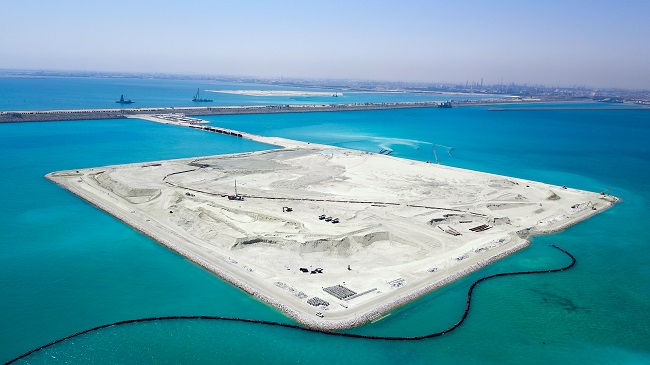Chinese-invested project benefits Pakistani workers in Saudi Arabia

Editor's note: China and Pakistan have forged an ironclad friendship based on sincerity and mutual support.The brotherhood between the two countries goes beyond economic cooperation, cultural exchanges and religious beliefs. Pakistan immediately sent four cargo planes loaded with 22,260 tents from its strategic reserves to China in 2012, after a devastating earthquake hit Wenchuan in South-West China's Sichuan province. Pakistan managed to collect 300,000 facial masks, 800 sets of protective suits and 6,800 sets of medical gloves for China in February 2020, at a critical moment in the fight against COVID-19.Today, the spread of COVID-19 in Pakistan has been brought under control thanks to China-aided vaccines, while the pandemic is still spreading quickly in other South Asian countries such as India and Bangladesh. Many Pakistani people attribute their tremendous achievement in the fight against COVID-19 to the China-donated vaccines. Meanwhile, the Pakistani people have also benefited much from working for the Chinese firm in Saudi Arabia.

My name is Shi Xiaodi and I am a news & publicity worker with the China Communications Construction Company (CCCC) in the Saudi Arabian Berri Artificial Island project in the Persian Gulf.
I and other workers got on a bus heading to our residential base one day after work. It didn't take a long time before the bus was packed with people.
After a while, I asked the driver why he still didn't pull out when we waited there for such a long time. He responded to my question in English with a deep local accent but failed to make his reply understandable.
It was at that moment that I heard a foreign man saying hello in fluent Chinese to an electrician when he boarded the bus.
During my conversation with a Chinese colleague on the second day, I learned that the foreign man was Cavar, a versatile worker from Pakistan at the construction site.
Cavar quickly became a versatile worker and received a formal employment contract with the Platform team.
Cavar was born into a rural Pakistani family of five children. He travelled to the Ras al-Khair Port in Saudi Arabia and found a job there with low pay when he was just 18 years old.
Later, Cavar started to take on extra work and deeply impressed many Chinese construction workers with his diligence and professional ethics. Therefore, local Chinese builders were extremely willing to impart their machinery operational skills and equipment maintenance knowledge onto him.
Cavar quickly became a versatile worker and received a formal employment contract with the Platform team.
Thanks to the support of team and through his personal efforts, Cavar became one of the first forklift truck drivers with a vocational certificate from Saudi Aramco.
Additionally, his monthly wages have increased by 2,000 yuan (about $274).
Cavar bade farewell to me in December 2020, when I came back to the project base after the conclusion of a quarantine period. Dressed in decent clothes and wearing three rings on his hands, he told me that he was going home to get married.
Moreover, he had also built a three-story building as his marital home.
"Brother, don't worry about me. I and many Pakistani people have been inoculated with Chinese COVID-19 vaccines," Cavar said to me when I shared with him about Chinese COVID-19 pandemic response measures and asked him to take care of himself before his departure.











.png)
.png)
.png)





